Animal lovers are a special breed of humans, so if you find it hard to sell a veterinary practice, you’re not alone.
The decision is challenging, whether you feel like the time has come or were forced to sell. And that’s why you would have a ton of questions about the process.
In this blog post, we'll help you understand the big picture of selling a vet practice and how to ensure that it's right for everyone involved.
Are you ready to move on from your vet practice? We’ll discuss each required step in detail throughout this post. But here’s what it takes to sell with the least hassle and make the most money:
Are you looking for tailored advice on selling your veterinary practice? Get in touch with Exitwise, and we’ll help you build and manage your dream M&A (mergers and acquisitions) team. These expert investors, accountants, and lawyers will guide you to optimize your practice’s valuation, navigate legal complexities, and negotiate favorable terms.
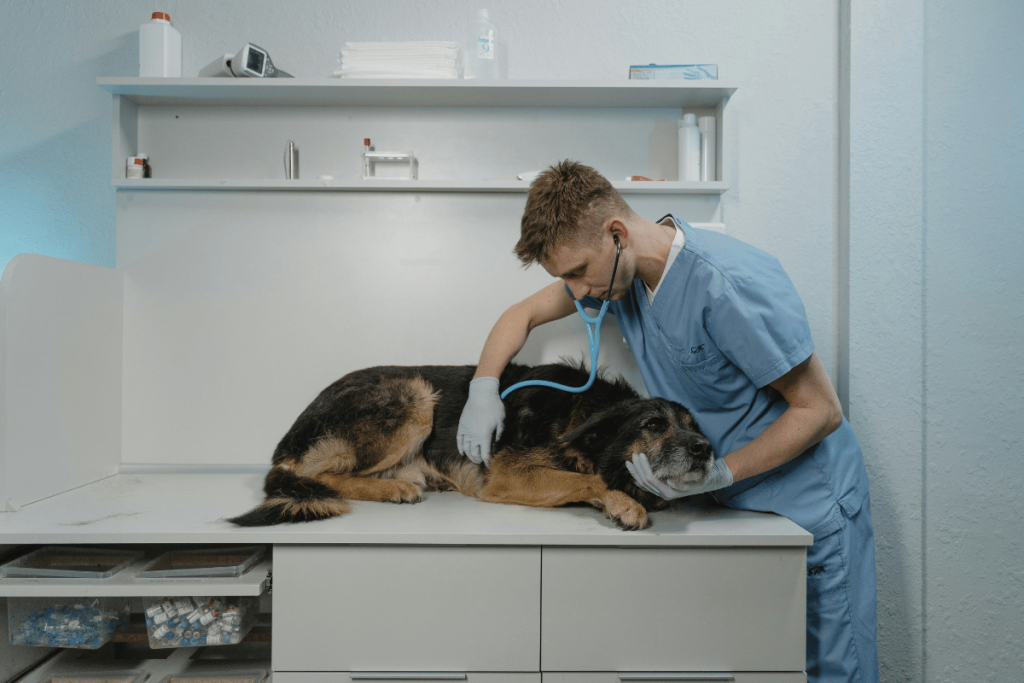
There are key areas you should focus on to ensure you maximize the value of your veterinary practice so it can remain competitive and attractive to potential buyers.
Let’s check them out:
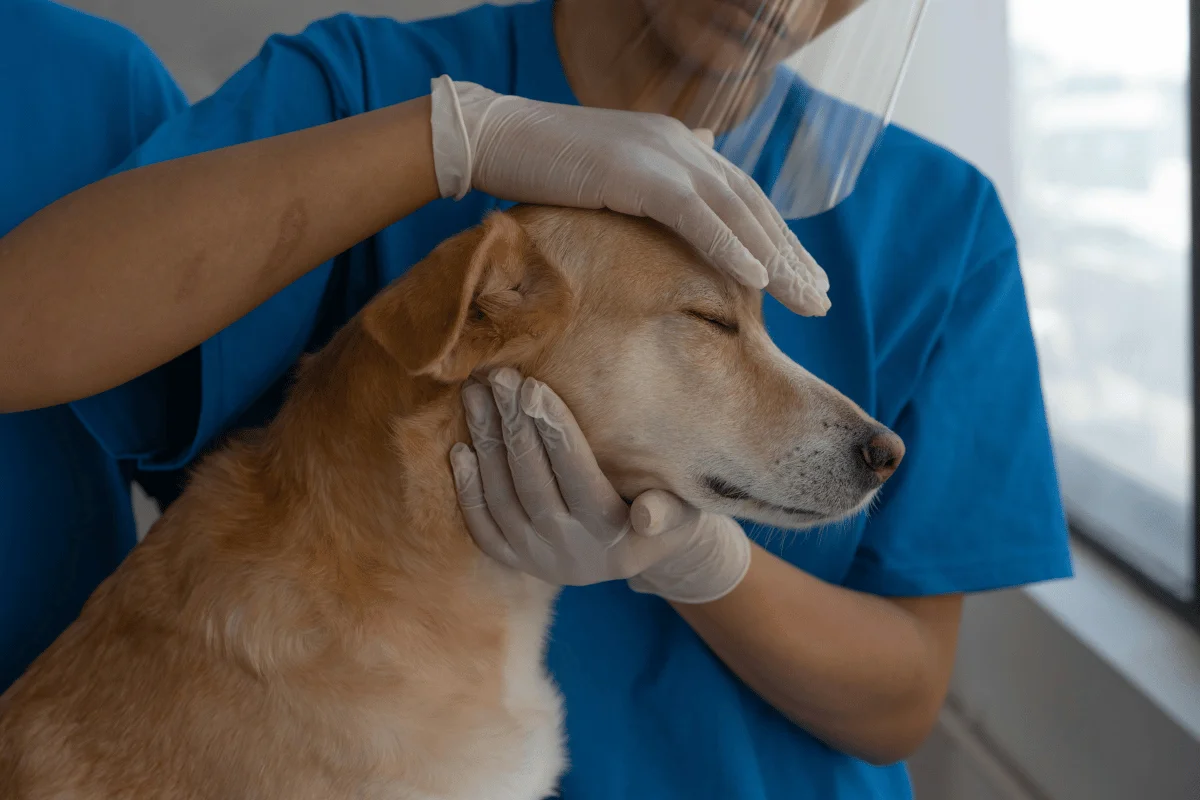
How you value your veterinary practice determines the kind of deal you’ll get. So here’s what you need to do:
EBITDA is your earnings before interest, taxes, depreciation, and amortization. Veterinary practices can sell for a range of multiples based on their EBITDA, typically between:
A range of factors, such as location, size, profitability, and growth potential, influence the magic number.
Cozy neighborhood clinics are on the lower end, while bustling animal hospitals with a solid growth record snag higher multiples.
Corporations seek vet practices with strong EBITDA margins. While they’re willing to pay a premium, the amount varies from a few hundred thousand to several million dollars. Financial performance, growth potential, and strategic fit within their portfolio dictate the numbers.
Often, the price tag includes a mix of upfront cash and potential future earnings based on the practice's continued performance.
So, if your clinic has net margins of 10-25%, a solid customer base, and a knack for growth, corporations may be willing to pay top dollar for it.
DID YOU KNOW?
Mars, Inc., the famous chocolate and animal food producer, is the largest holder of veterinary practices in the U.S. After its recent purchase of Veterinary Centers of America, it has over 2,000 clinics and 50,000 veterinary professionals.

Veterinary practice valuation multiples reflect how much your practice could be worth. Appraisers can choose to set these multiples in relation to a few financial metrics, such as:
The choice of multiples depends on the nature of your practice, its market, and what buyers are most interested in.
Is your practice thriving? Do you have a solid customer base and diversified services? Is it in a good location? All these show potential for long-term revenues, allowing you to command higher revenue multiples.

In the current market, there are various types of buyers for veterinary practices, such as:
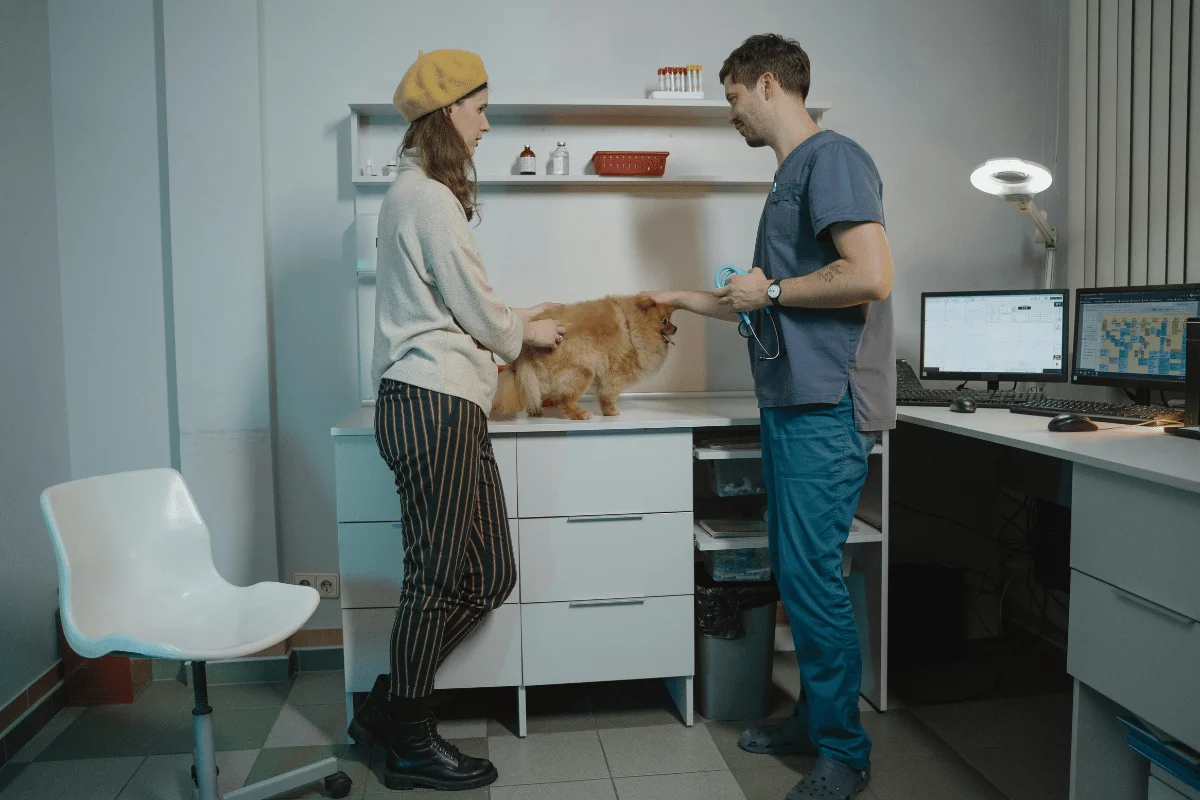
Although selling to a corporate group (such as a consolidator) offers several benefits, including a smooth transition, it also comes with drawbacks.
Let’s look at them below:
When you sell your veterinary practice to an individual buyer, whether it’s an associate veterinarian, a recent graduate, or an independent practitioner, they will likely value your legacy, unlike corporate groups.
Check out some of the other highlights and drawbacks below:
There are different ways to maximize the value of a veterinary practice, but the approach can vary based on your timeline.
Are you in a hurry to sell?
Consider the following pro tips to make your practice more appealing to potential buyers immediately:
Do you want to increase your practice’s value substantially?
Take more time to implement the following strategic, long-term measures:
With the right strategies, you can obtain a correct, maximized veterinary practice valuation. You can involve a merger and acquisition (M&A) advisor for additional support.
At Exitwise, we have a solid track record of supporting our clients in hiring the best M&A experts, proven by our success stories. Contact us, and we’ll help you write a similar story for your practice.
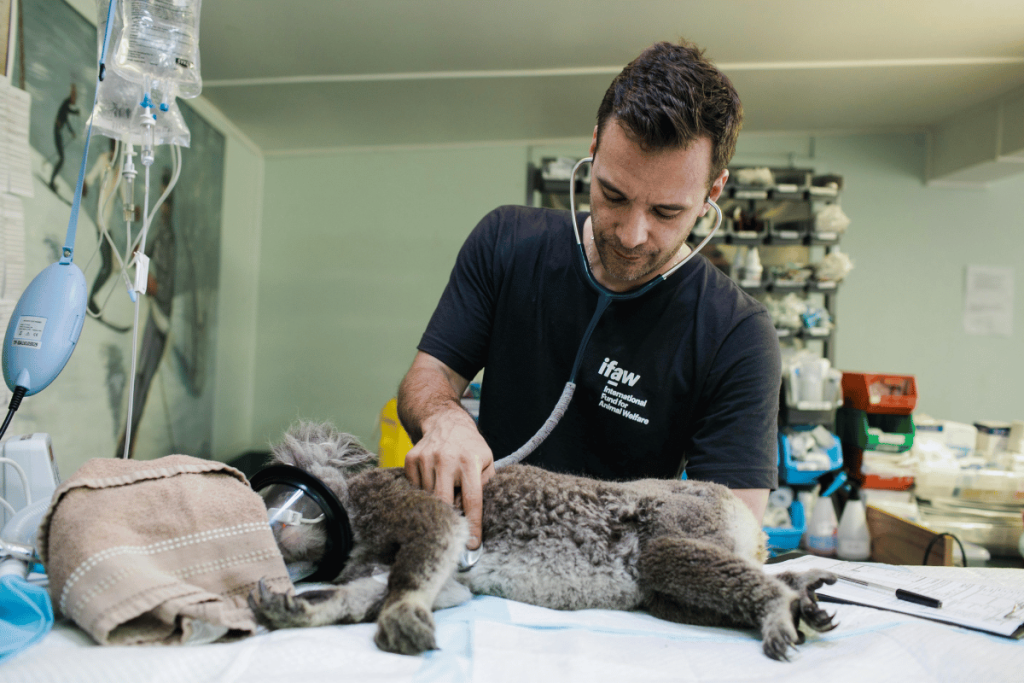
The steps to a successful vet clinic sale are not always obvious. It's a mix of doing the right things at the right time and putting heart into it.
Below, you’ll see a breakdown of the process and discover what it takes to hand in the keys with confidence and pride.
Start by figuring out what your veterinary practice is worth.
Aside from the money you make, think about what makes your place unique. Is it your loyal customers, top-notch equipment, or a skilled team?
Then, go beyond the obvious. For instance, your practice’s location could be a goldmine if it’s in a rapidly growing community or underserved area.
Also, consider your practice's online presence and reputation. A solid online review profile or an engaged social media following can significantly enhance value.
Considering all these, you can estimate your veterinary practice’s value using a valuation calculator.
Buyers love to see clean records and a well-run office. It shows them you’re serious. So, make sure everything looks good and is in order. Clean up the clinic and organize finances.
Instead of worrying about major renovations or expensive upgrades, you can try some smaller, strategic investments like:

When you’re ready to sell, tell buyers why your practice is worth their investment. Highlight what’s unique and try to appeal to buyers looking for a business with heart and soul, not only good numbers.
Do you offer a particular service? Are you known in the community for something extraordinary? Make sure your ads or listings showcase these stories. Use photos, testimonials, or short videos to make your practice stand out among the standard sales listings.
As much as you want to find someone who cares about your practice and will keep your legacy going, you mustn’t sell yourself short. Use your network, or maybe get help from a pro to find the type of buyer you’re most interested in.
Tip: Consider buyers outside the traditional veterinary circle, like business-savvy individuals passionate about animal care. They can bring fresh perspectives and might be more interested in maintaining your legacy rather than making quick changes for profit.
When you’re ready to negotiate, think hard about what matters to you. Is it the practice’s reputation for excellent care? Is it making sure your team is okay? Knowing your top priorities helps you strike a deal that feels right.
Expect the process to involve negotiation, but do your best to avoid the delays that could kill your sale. You’ll discuss price, keeping your staff, and maybe how the practice’s name lives on.
Having a good lawyer by your side will make this step go smoothly. An experienced lawyer can make sure the deal respects what you care about.
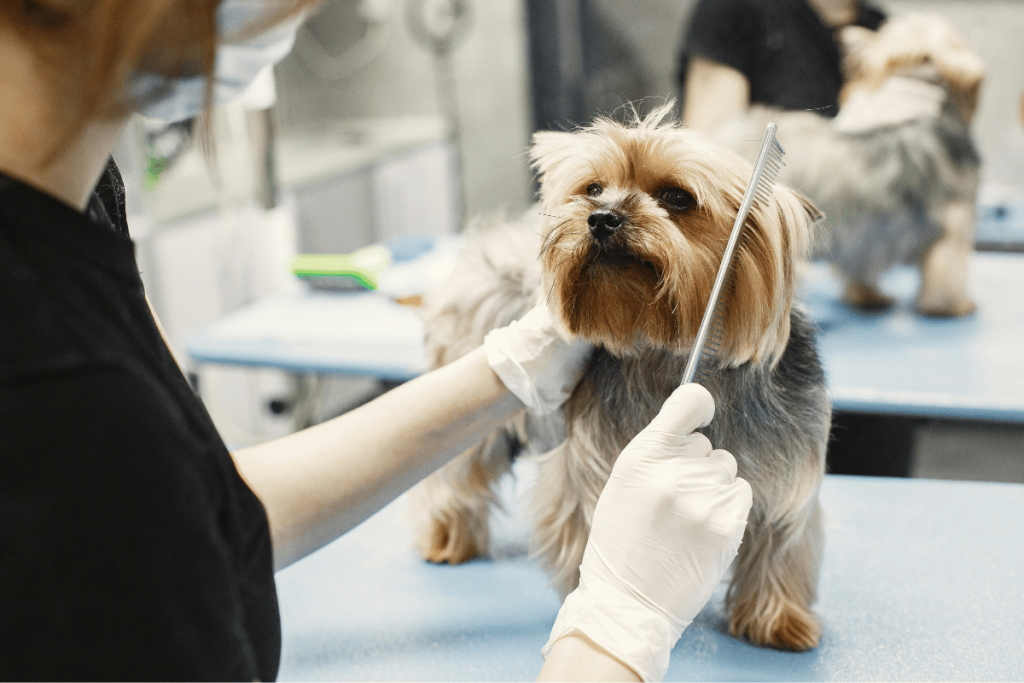
The devil is in the details. Beyond setting a price and finding a buyer, some subtleties can make or break the deal.
Here are five common pitfalls to avoid if you want to seal the deal successfully and with your peace of mind intact:

Before going all in with selling your veterinary practice, check out the answers to the following frequently asked questions:
You'll need financial statements, tax returns, lease agreements, and employee records to sell a veterinary practice. Also, prepare an inventory list and any existing client contracts, and use a selling checklist as a guide.
Legal considerations include ensuring compliance with local and state veterinary regulations and transferring or terminating the lease and contracts. Confidentiality agreements to protect client and business information are also necessary.
Brokers can offer valuable expertise in valuing your practice, marketing it to potential buyers, and negotiating terms. They act as intermediaries, facilitating the sale process.
To ensure a smooth transition, you should establish a detailed handover plan with the buyer, including a period of training or consulting. Communicate openly about the coming changes with everyone involved, notifying clients and actively supporting your old team and new owner during the transition period.
When selling your practice, be aware of capital gains tax on the sale price versus the book value. Consulting with a tax advisor can help minimize tax liabilities and ensure compliance.
The timeline for selling a veterinary practice typically ranges from 6 to 12 months.
However, it can be shorter or longer, depending on several factors, such as your financial health, location, type of buyer, and the preparation you’ve done.
The short answer is, it depends.
When you sell your practice to a competitor, they already understand your industry and value your client base, so they are likely to offer a higher price. So it can result in a faster sale and continuity of your brand.
However, the downside is that if the deal doesn’t go through, the competitors might use the knowledge of your financials and operations to their benefit. So vet the buyer thoroughly and ensure they sign a non-disclosure agreement to prevent your confidential information from leaking.
By now, you’ve learned you must make your practice shine, accurately value it, and create an outstanding listing to generate attractive offers.
That’s a tall order that requires multiple skills. To avoid making mistakes that might cost you dearly, you should find the right people to guide you through the sale process and support you in making the most of it.
At Exitwise, we’ve been down this road countless times. Connect with us, and we’ll help interview, hire, and manage your M&A dream team to sell your veterinary practice under the best terms.
Let Exitwise introduce, hire and manage the best, industry specialized, investment bankers, M&A attorneys, tax accountants and other M&A advisors to help you maximize the sale of your business.

